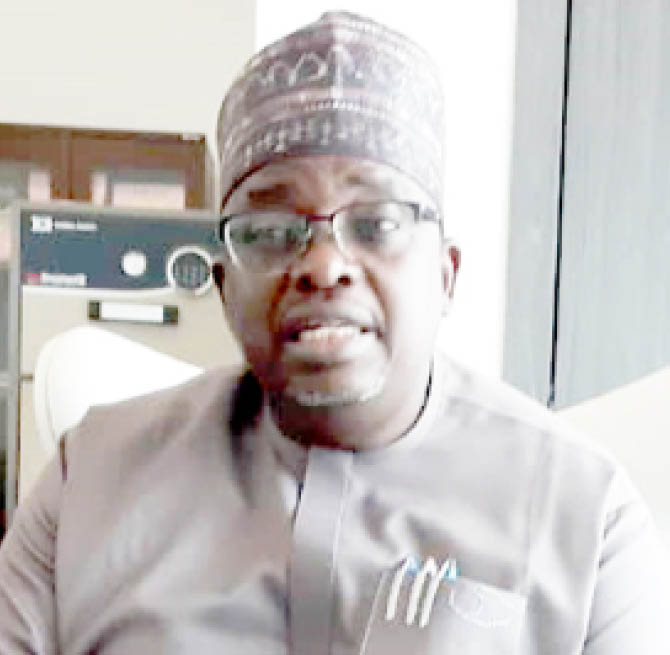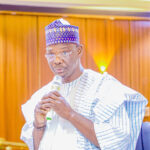Professor Mohammed Kuta Yahaya, an agricultural expert from the University of Ibadan, is the Secretary to the Presidential Implementation Panel for the new Livestock Development Ministry. In this interview with Daily Trust, he provides an update on the status of the ministry and outlines what Nigerians should anticipate from it when it takes off.
Many farmers are curious about why the livestock ministry’s implementation is taking long after President Bola Ahmed Tinubu announced its creation. Where are we?
There is no delay. Maybe I should give you some background information. Sometime in February, 2023, there was this national conference on livestock reforms and mitigation of associated conflicts in Nigeria hosted by the Kano State Government under the leadership of then Governor Abdullahi Umar Gaduje. The conference was chaired by Professor Attahiru Jega and I coordinated the entire conference and chaired the technical subcommittee that produced the blue print and the report of the conference.
President Bola Ahmed Tinubu ultimately emerged victorious, and as a result of his longstanding passion for that sector, because I recall that in October, 2018, he sponsored a conference at which I moderated. During that time, he attempted to find ways to address the issues at hand even when he was not the president. So, I was able to observe and read his interest in the matter. At the end of the day, he has become president and the conference’s report was submitted to him.
- 2027: We are working to bring Kwankwaso, Obi back into our fold – PDP
- Doyin Okupe: Why I dumped Obi for Tinubu
Nigeria is in need of action; so no more talk shows. And Mr President, when he received that report on September 14, 2023, said the solution was here, this was what Nigeria had been waiting for. He promised that as the committee recommended that Nigeria should have a Ministry of Livestock resources as the other West African countries like Burkina Faso, Mali and Niger, it shall be implemented. Those countries have huge potential for livestock. They are maximising their potential in the West African region and in Africa. You can see countries like Kenya, Botswana, South Africa and Senegal; they are doing extremely well. Nigeria, despite its huge potential: massive land and highest concentration of animals in the entire Africa, production is very low.
So, with the huge potential, we needed to think about the productivity and other quality products to compare to the rest of the countries in Africa in terms of yield.
When Mr. President inaugurated this committee on the 9th of July, there were 16 terms of reference to be achieved and over 20 objectives generated by the committee. And one of the terms of reference is to work out the modality of establishing the Federal Ministry of Livestock Development.
So, people are agitated about one issue. But there are 15 other issues to address, but what the majority are are interested in is the ministry, because of maybe the probability of employment opportunity, the probability of political appointments to the ministry and other benefits that will accrue to those who are agitated. But for the committee, Mr. President is the chairman, co-chaired by distinguished Professor Attahiru Jega with 23 other eminent Nigerians that have joined these two great people and men of outstanding credentials. They’re all working together to come up with a robust implementation strategy for the government.
From the day Mr. President inaugurated this committee, the committee has not rested, and it has been putting all together, consulting all documents that are available on livestock and its development locally and internationally and consulting other stakeholders on a one- on-one basis. The committee is already engaging in the form of subcommittees, looking at different aspects of the terms of reference. The mandate of one sub-committee is to look at the structure, organisational organogram, mandate and functions of every unit in the new ministry. That is just one out of five, six committees.
So, it’s not all about establishing the ministry but how it comes out to be one of the best in the world.
Are you implying that take-off is not being delayed in a way?
The take-off is not the issue. You cannot go and build something where there is nothing. You have to start from somewhere; you have to lay the foundation. You have to put all the instructions in place. The committee has a mandate even to look for the space where it would operate from, put up everything in place so that when there is deployment, nobody is going to suffer untold hardship, and that is why the committee is working around the clock.
So, out of 16 items, the first item, which is the creation of the ministry, is the one that everybody is looking at. You are not looking at other social and economic issues that are in the terms of reference: how to mitigate conflict, how to enhance productivity, how to create opportunities in the sector, how private sector can take advantage of the window of opportunities created by the president for the livestock sector. What about the issues of inclusivity? What are the social, contextual issues to be addressed that are more paramount.
Some stakeholders feel that this new ministry will primarily serve the interest of herders; how will it care for others within the sector?
You need to look at that report that would be submitted to the president very soon. I’m sure by the time that report gets to the president and it becomes a public document; Nigerians will run to catch all the opportunities that are therein, because livestock is a whole bunch of opportunities and possibilities in diverse areas. But the only one that people come to relate with is cattle, simply because cattle is the most prominent, is the big of the stock of the park and is responsible for the majority of meat consumed in our country.
Looking at the pedigree and calibre of persons who are involved in the design and the recommendations put forward to Mr President, what sort of ministry should Nigerians expect?
Expect the best; that’s what I will say because there is no need to speculate, you just wait and see the outcomes. Anybody who is familiar with the president will know that he is a man of action. He is a man that goes after the ball, and when he scores a goal, you see another major goal again. He has scored a goal by creating the ministry; he will score more goals by making sure it turns out to be the best.

 Join Daily Trust WhatsApp Community For Quick Access To News and Happenings Around You.
Join Daily Trust WhatsApp Community For Quick Access To News and Happenings Around You.


